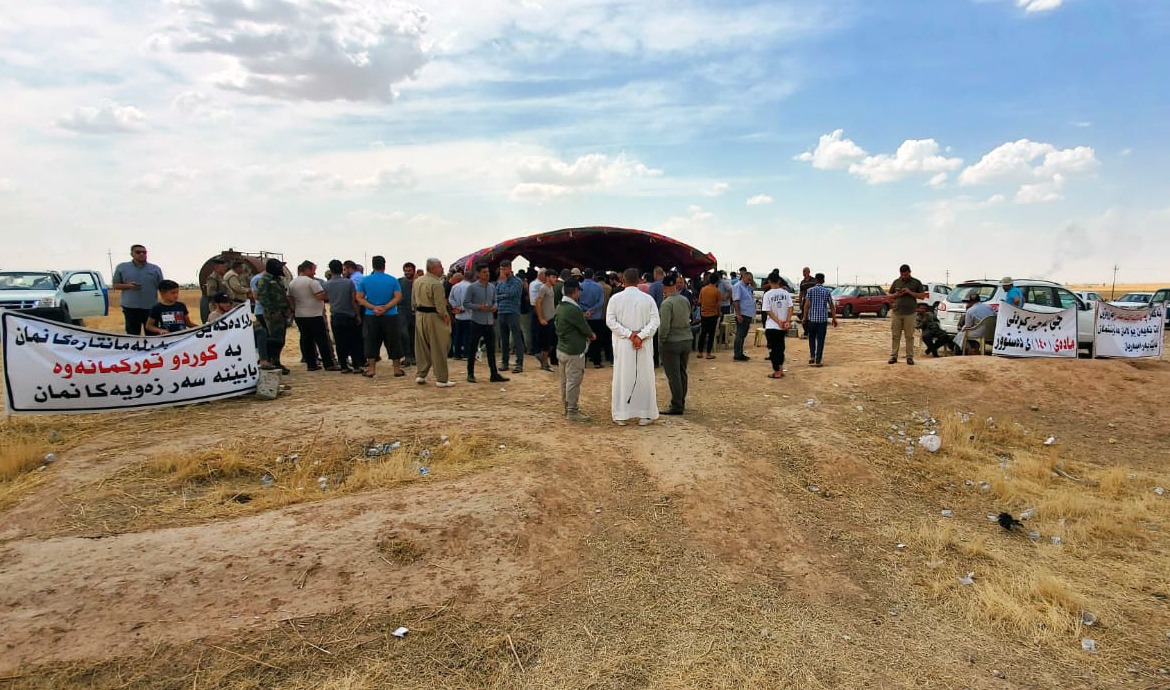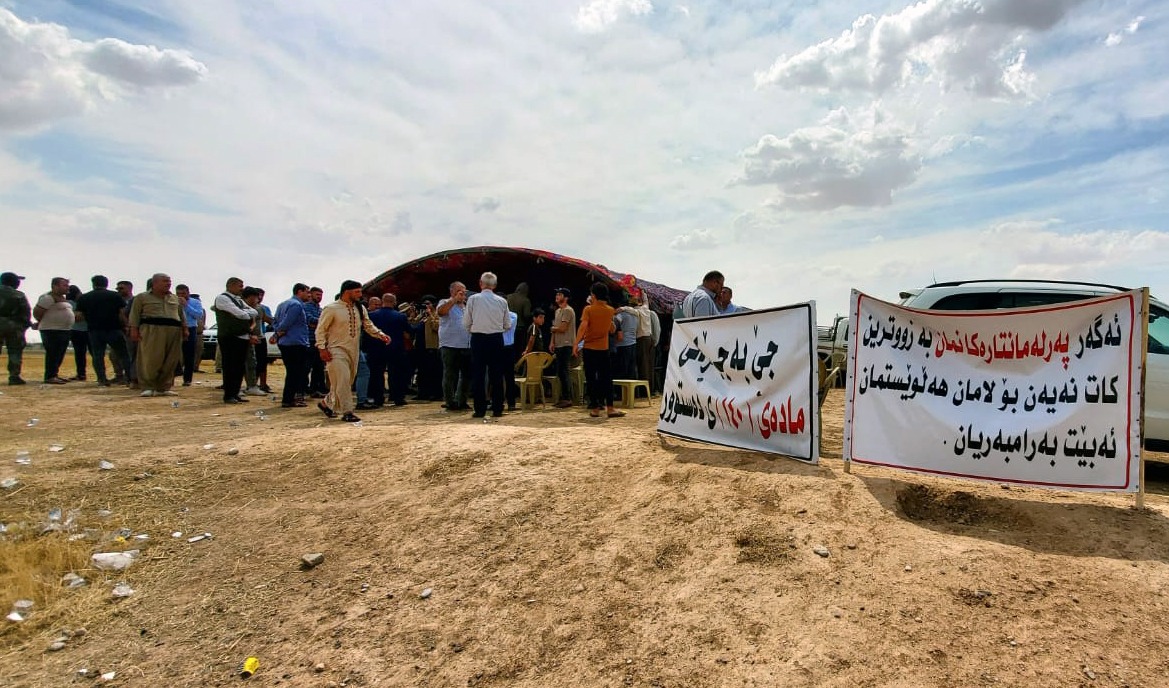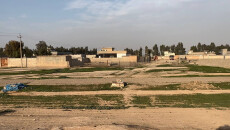The Iraqi Minister of Defense agreed for the farmers to resume harvesting the wheat crop in the village of Topzawa, south of Kirkuk, after it was prevented by a decision of the Iraqi army units based in the region.
On Wednesday, May 31, the Iraqi Minister of Defense, Thabet Muhammad al-Abbasi, arrived in Kirkuk and met with the administrative and security officials of the governorate with the aim of discussing the security situation in Kirkuk.
The deputy in the Iraqi parliament, Najwa Kaka’i, who attended a part of the meeting with the Minister of Defense, visited the Topzawa farmers on the same day in the sit-in tents that they set up in the village to protest against the decision to prevent them from harvesting their crops.
“I discussed with the Minister of Defense your problem and he agreed to the farmers’ resumption of the harvest process, I came here to tell you that you can start harvesting,” she told the farmers.
I discussed with the Minister of Defense your problem and he agreed to the farmers’ resumption of the harvest process
Last Monday, May 29, the Iraqi army prevented a farmer from the village of Topzawa from harvesting and confiscated his agricultural harvester. They also destroyed what he harvested that day of the wheat crop, according to Talat Abdullah, the farmer who was prevented from harvesting.
A reporter (KirkukNow) went to the village on the same day and saw what happened in that village.
Preventing farmers from harvesting by the army's decision came after a number of Arab farmers, who were using agricultural lands since 1970s up to the toppling of Socialist Arab Ba’ath Party chaired by Saddam Hussein in 2003, in Topzawa registered complaints against the current users of these lands.
The Kurdish and Turkmen farmers claim they are the real owners of the lands confiscated by Saddam regime and given per contracts to Arab settlers.

The northern oil-rich city of Kirkuk, located 238 kilometers north of Baghdad, is an ethnically mixed province for 1.7 million Kurds, Sunni and Shiite Arabs, and Turkmen. It has long been at the center of disputed territories between Baghdad and Erbil.
According to the Iraqi constitution, which was approved by a majority of Iraqi voters in early 2005, the fate of the disputed territories must be decided after three stages of normalization, census and referendum, according to Article 140, up to end of 2007.
The farmers of the village of Topzawa and several other villages in the region face another problem. A team from the Ministry of Defense visited them last March and informed them that their lands would be converted into housing units for army personnel, stressing that "the ownership of the lands belongs to the Iraqi Ministry of Defense."
Regarding this problem, Kaka’i told the farmers, "This is a legal issue and it must be resolved by law, and that depends on the available documents and evidence. Whether the farmer own a title deed or not, and whoever decided to transfer the land to the Ministry of Defense, we will continue our efforts to protect the rights of all farmers.”
Arkhwan Abdullah, one of the village farmers, told KirkukNow, “We were waiting for the Minister of Defense to visit us. Our problem is not whether we harvest or not (this year), it is a bigger problem. We will no longer be able to cultivate on our lands. We demand a solution to our problem.”
The villages that are witnessing conflicts in the region are Topzawa, Yaychi, Taseen and Qazilyar, south of Kirkuk, farmers are mostly Kurds and Turkmen.
The disputed territories is a constitutional term used to refer to the political and administrative situation in Kirkuk province and the areas that have been changed in terms of administrative and demographic conditions, including parts of the provinces of Diyala, Ninewa and Salahaddin, due to the policies of the Iraqi government from 1968 up to 2003.
Up to the present, only part of the first phase of normalization has been implemented, which led to tensions over administrative and security posts, disputes over ownership of lands and farms and several other issues leaving the area in poor conditions in terms of public services, stability and security.






